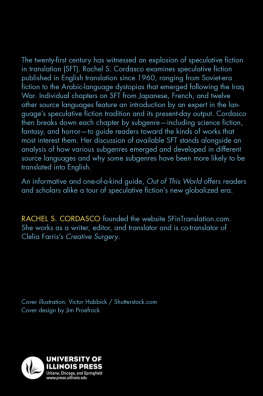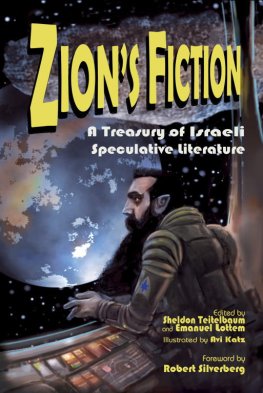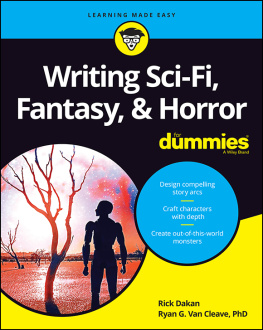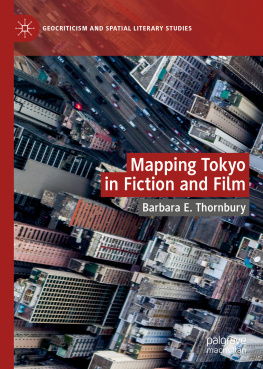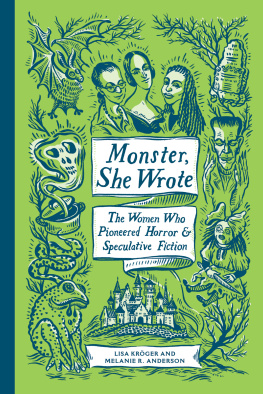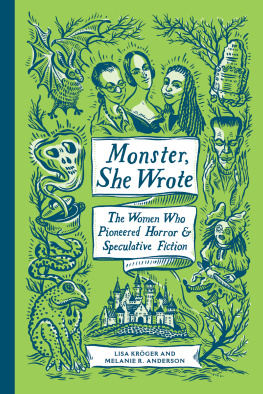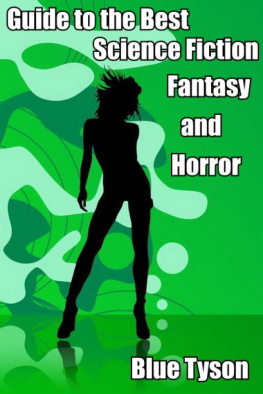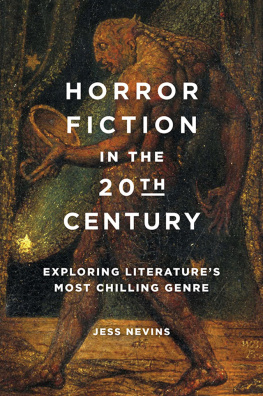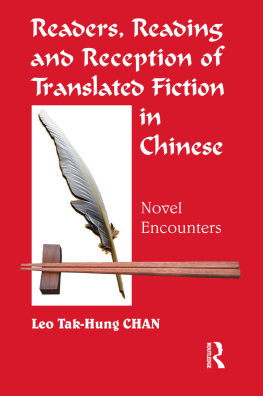Contents
Arabic-Language SFT
Introduction
Genre literature in translationspecifically Arabic science fiction in Englishis a very underdeveloped field. To my knowledge, none of the classics of Egyptian SF have been translated into English: texts by Tawfik al-Hakim (18981987), Mustafa Mahmoud (19212009), and Nihad Sharif (19212011). In fact, at an SF event I once attended at the Egyptian Writers Union, I bumped into a descendent of Sharif, only to hear an acquaintance of his complain that it was about time that some of his works be translated.
The situation is different with al-Hakim and Mahmoud, as al-Hakim was a distinguished playwright and literary critic, while Mahmoud was an Islamic thinker and celebrity across the Arab world. Nonetheless, even though much of their nongenre fiction has been translated, their science fiction has not, despite their status as pioneers of Egyptian SF in the 1950s and 1960s. Sharif is not nearly as well known internationally, although he was the first Arab author to specialize in SF, beginning in the 1970s, ushering in a whole new generation of authors.
The Maghreb (the western part of the Arab world) has fared better as far as translation is concerned because many of its authors write in French. The first Algerian SF authorsMohammed Dib (19202003) and Safia Ketou (194489)wrote in French, while other contemporary Maghrebi authors, such as Moussa Ould Ebnou (Mauritania) and Faycel Lahmeur (Algeria), often publish in French first, specifically to reach a wider audience (theyre keen on moving into English, too). Were a bit more isolated here in the eastern part of the Arab world, though, and its our own fault. Egypts National Centre for Translation and Publishing, for instance, is exclusively concerned with translation from other languages into Arabic, despite their commendable role in charging competitive translation rates and sorting out copyright issues. Most literary translation work in Egypt is done on a one-on-one basis, with individuals connecting translators with those interested in having their manuscript translated into English; acceptable rates are then agreed upon privately. Sometimes, translators struggle to track down an author online to get their permission to translate a beloved short story, with the promise to split the proceeds afterward, if the translator can find a buyer (for instance, online short-story contests or magazines that also deal with translated texts). Then its up to the translator how to translate it: relying on formal English that sounds like Arabic or on colloquial English that foreign readers will recognize.

Frankenstein in Baghdad (2018)

Iraq + 100 (2016)
Its a laborious and haphazard process. If publishers in the Arab world made a concerted effort to hire (or advertise for) translators and target specific authors, works, genres, and foreign audiences, the process would work much more smoothly and Arabic-language SF would have more of an impact on foreign perceptions of the genre from this source language. International publishing houses seem to be filling the breach, luckily, but even here there are problems. Arabic literature expert Marcia Lynx Qualey has explained that the West is now very interested in Arabic SF, especially since the Arab Spring, wanting to use it as a barometer for things to come. Is it a coincidence that all three novels are dystopias and that Towfiks first novel, written originally in 2008, was translated only in 2012? The same goes for Ahmed Saadawis Frankenstein in Baghdad (2013), originally written not after the Iraq War but following the Arab Spring, along with the equally depressing stories in the Iraq + 100 anthology. This is a commendable first step, but the political focus offers a skewed image of Arab genre literature. Most SF writers in Egypt write horror, detective fiction, and dark fantasy, including Towfik and Rabie. This is either out of personal preference or to make ends meet. And even when they write SF, its not necessarily dystopian. Themed anthologies of childrens SF are quite popular, as well as other subgenres like postapocalypse, cyberpunk, alien invasion, first contact, conspiracy-theory SF, Sufi-themed SF, and resistance literature.
Another barrier for Arabic SFT is the focus on famous authors, regardless of subgenre. Ahmed Salah al-Mahdi, a friend of mine, has been struggling to get English versions of his works (fantasy as well as SF) published, but to no avail, even with the help of enthusiastic and experienced foreigners. Several friends of mine from the Indian subcontinent and sub-Saharan Africa tell me that they face the same problem. Translations of younger and widely read authors would give Anglophone readers a much better picture of the true current state of Arabic speculative literature. It would also show the range of influences writers draw from that go beyond politics. They have access to a much wider and very different set of foreign SF worksclassics, pulp sci-fi, comics, video games, cinemawhile still being strongly influenced by folktales and legends. Theres also the geographical dispersal, with a good many authors from the provinces, and their language skills, geared more to colloquial Arabic. Their writing methodology is also different, relying far more extensively on research (facilitated in part by the Internet) than previous generations.
Self-publishing, e-books, podcasts, blogs, and online translation and short fiction contests are filling this breach and bringing Arabic SFT to the Anglophone world despite everything.
Emad El-Din Aysha
The Texts
The majority of modern Arabic-language SFT has come to us within the past decade, mostly from Egyptian and Iraqi authors. Given the fraught relationship in the late twentieth and early twenty-first centuries between the Anglophone world and the Middle East (particularly since the first Gulf War, in 199091), its not surprising that many of those Arabic texts translated into English are dystopias or works of dark fantasy (as Emad El-Din Aysha discusses in the chapter introduction). Because of translators like Elisabeth Jaquette, Jonathan Wright, Chip Rossetti, and others, Arabic-language SFT is gaining prominence in both genre-specific and general literary publications and presses.
While many of the texts in this chapter fall into the overly broad fantasy category, together they reveal just how rich and diverse such stories can be. Some of these texts can be called high fantasy because they include magical creatures (like ghosts and jinns) or ancient gods, while others deal with mythology, magic-based time travel, fable, and unexplained disappearances. The four dystopian novels in this chapter (all translated and published in English between 2011 and 2017) imagine an apocalyptic, authoritarian future, while the horror and science fiction novels (totaling two) examine questions of immortality and the existence of the soul.
FANTASY
The first work of Arabic-language fantasy translated into English is Ibrahim al-Konis Anubis: A Desert Novel (2002; 2005). A unique work of fantastic mythology based on Tuareg folklore about Anubis, the ancient Egyptian god of the under-world, this book takes readers on a kaleidoscopic journey through the Libyan desert. A young Tuareg boy goes on a quest to find the father he barely remembers from his childhood, but the spirit world seems to challenge him at every turn. An oasis that gradually deteriorates into a mundane human community, a lover who turns into a sibyl-like priestess, animal metamorphosis, human sacrifice: all of these pieces form the picture of a complex history and culture in which the ancient past and the troubled present confront one another.

